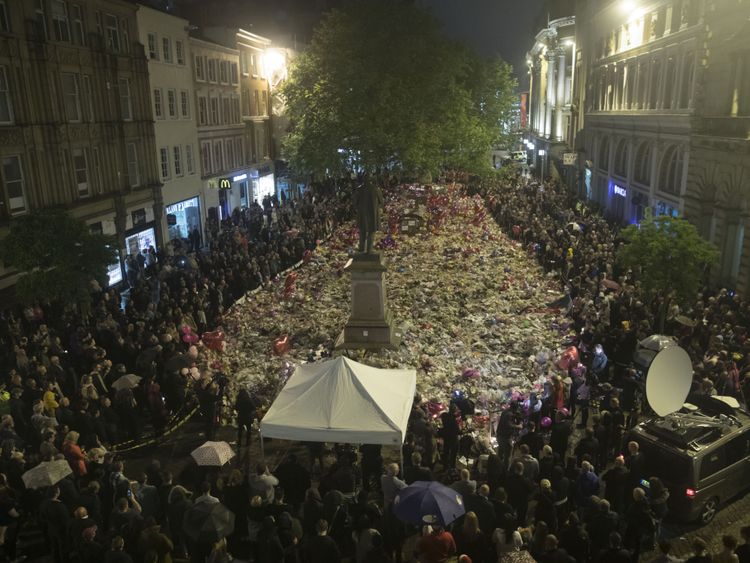A man close to Manchester Arena suicide bomber Salman Abedi has said there is no way he acted alone.
The 22-year-old may have died when he committed mass murder at the music venue last year, but the investigation into his attack on a concert hall packed with young people is far from over.
A hundred officers are still working full-time on the investigation.
Some 23 people have been arrested in connection with the attack but no one has been charged.
Many questions continue to hang over the attack as officers try to establish whether Abedi acted alone or if anyone could be prosecuted.
One man, who spoke to Sky News in Manchester on the condition of anonymity, was close to Salman Abedi and was held in custody for two weeks following last year’s attack.
“I got arrested for two weeks. Questions after questions,” he said. “That was the worst part of my life I have ever experienced. Being questioned made me feel like I was part of it.”
When I asked if he had noticed any change in Abedi before the attack, he replied: “He changed in a bad way. We were seeing stuff that wasn’t right, I noticed a lot of change.”
When I asked if he thought Abedi had acted alone, he replied: “No… I still think that he chose to do it, not forced to do it, but someone might have assisted him.
“A lot of family members are saying that as well. One man can’t do that himself, we know him, he’s not a smart guy. We know what he’s capable of. Someone definitely helped him out.”
The man police really want to speak to is Abedi’s brother, Hashem. He travelled from the UK to Libya with his brother the month before the attack but did not return. Salman Abedi, however, did return, and made his way to the Manchester Arena with a bag packed full of explosives.
Hashem Abedi was arrested in Libya shortly after the attack but a year on he remains in the custody of a militia group in Tripoli.
The UK has requested his extradition but it is not clear if or when that will happen. The situation is complex. A former head of UK counter-terrorism said it was more a political than a policing issue.
“An extradition to most countries in the world is reasonably easy, but Libya has other issues,” said Chris Philips.
“They are dealing with terrorism of their own, there are different factions in charge of different parts of the country and to get a stable answer has proved difficult or else they would have brought him here by now.”
In a statement, Assistant Chief Constable Russ Jackson said: “Firstly, we must respect the Libyan legal process and we are very grateful to them for considering our request.
“Secondly, it is vital that the court process is respected in this country and especially the right to a fair trial. It is because of this that we cannot comment on any specific detail of the case. When we can say more, we will of course do so.”
From – SkyNews







